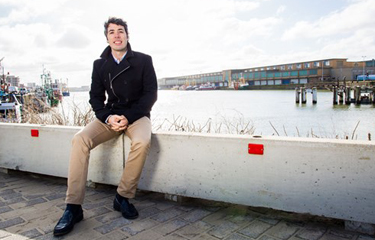The head of European fisheries representative body Europêche said he believes it will be “really difficult” for the World Trade Organization to reach an agreement to limit harmful fishing subsidies before the end of February.
WTO negotiators are currently reviewing the latest draft of the agreement, which has advanced slowly and already missed several deadlines. Santiago Wills, Colombia’s ambassador to the WTO and the chair of the fisheries subsidies talks, had suggested a deal was in reach at a recently postponed ministerial gathering in Geneva.
“Many fundamental questions remain open such as fuel subsidies, [illegal, unreported, and unregulated] fishing determination, and the flexibilities granted to developing countries,” Europêche Managing Director Daniel Voces de Onaíndi told SeafoodSource.
Voces said a debate on whether the agreement should ban subsidies from being granted to vessels flagged to third nations is moot for his organization, as they are currently illegal under the laws of the European Union. The transfer or reflagging of E.U. fishing vessels to third countries, including through the creation of joint ventures with partners of third countries, are ineligible to receive support from the European Maritime Fisheries and Aquaculture Fund, he said. And Voces said European vessels that receive subsidies cannot be transferred or reflagged outside the E.U. for a term of five years from the final payment they receive.
“We note with concern, however, the exponential increase of fishing capacity in African countries such as Senegal and Ghana, mainly due to the export of tuna-fishing vessels from Asian countries. This hampers progress towards sustainable fisheries management of tropical tunas in the Atlantic,” Voces said. “There is a need to prevent the transfer of capacity from other oceans to the Atlantic, and even more [so] if these operations are being subsidized.”
Europêche “very much favors” recent U.S. action to tackle forced labor in fisheries, according to Voces, referencing an unsuccessful U.S. effort to introduce text on forced labor into the draft WTO agreement. But the organization “does not have an opinion on whether WTO is the right body to deal with this issue,” Voces said.
As an alternate strategy, Europêche “working on new legislative proposals, based on the IUU system, to ban seafood products in our market that have been made by forced labor,” Voces said.
Photo courtesy of Europêche







